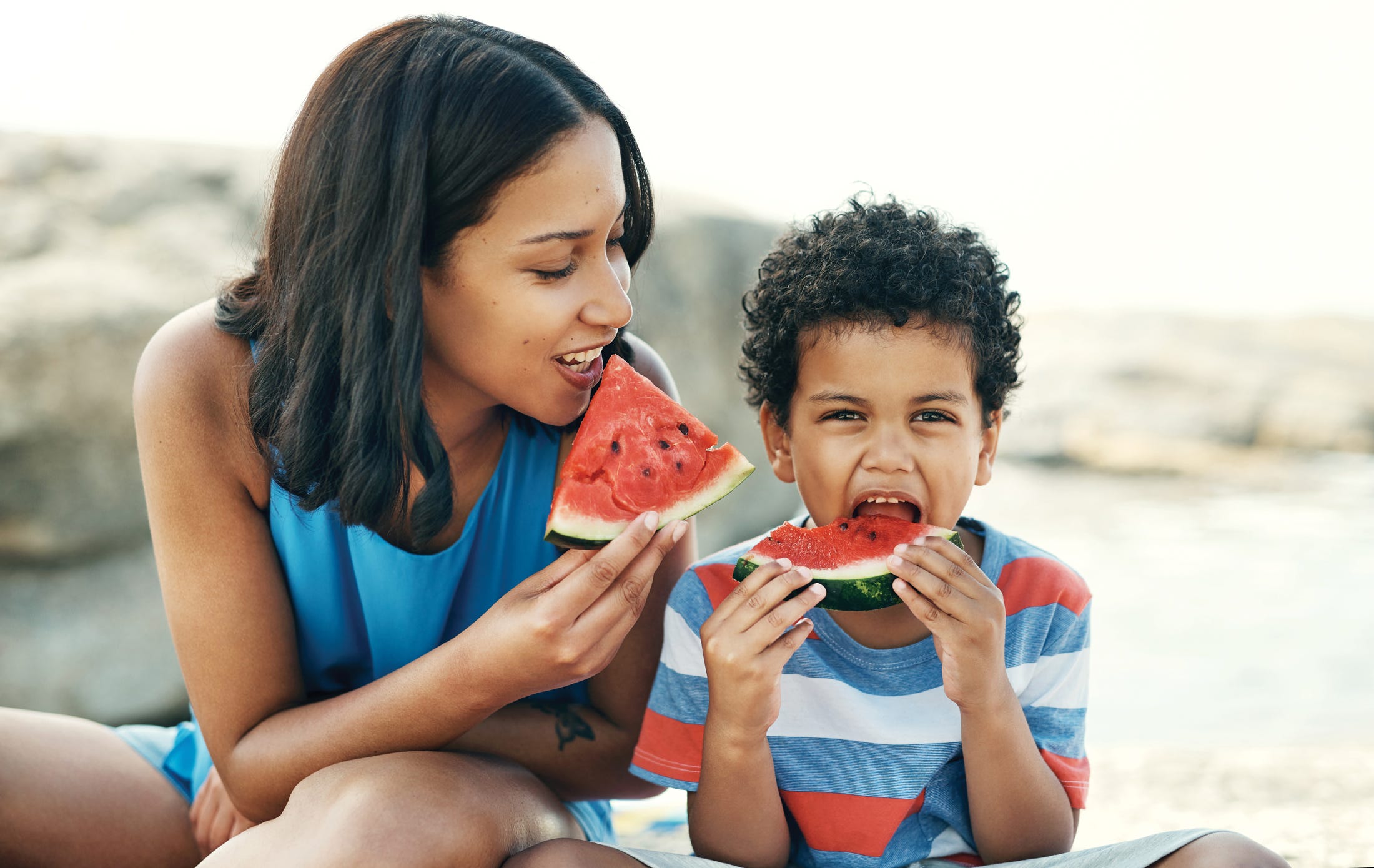Pediatric HealthSource: Eating Healthy on the Go
Plan ahead to ensure you have nutritious meals and snacks available during your family’s busy times.

Q: How can I make healthy snacks for my family during an active sports season or summer?
A: A sound yet flexible nutrition plan is one of the greatest keys to success for your family. However, finding time to plan meals can be very difficult with on-the-go schedules. Your child’s nutrition directly affects their performance both on and off the field, as well as prevention of illness and injury. Look at your calendar and set aside time to plan nutritious meals and snacks for you and your family. Meal prepping helps to save time and maintain an overall healthy diet.
Setting aside 10 to 15 minutes on the weekend to plan meals and snacks for the week, along with planning your family calendar, can be beneficial. First, pick the meals and snacks you want to eat for the next week or two and create a grocery list—your kids can help! Next, designate a day on which you will prepare the food. You might roast a chicken, bake a casserole or make yogurt parfaits. Finally, package everything into portioned, portable meals so the next time you need to run out of the house, your food is ready to go.
A quick option such as a peanut butter and jelly sandwich, banana, carrots with dip or a granola bar will fuel your youngster better than a fast-food burger and fries. But if you have to rely on the drive-thru, try options such as grilled chicken sandwiches or wraps, apple slices or yogurt parfaits.
A key point to remember is that snacks are not bad for you. “Snacks” are not limited to chips or candy. Snacks are necessary between meals to help keep your family fueled for academics, overall health, growth and physical activity.
Thirty to 60 minutes before practice or a sporting event, encourage your child to eat something easily digestible that contains carbohydrates, such as a granola bar, pretzels or a piece of fruit. After a game, pack a snack with protein—perhaps peanut butter crackers, yogurt or chocolate milk—to help your child’s muscles recover properly.
If you’re on a long car ride, try to pack healthy snacks that will keep the family full, like trail mix, popcorn, whole wheat muffins or rice cakes with bananas on top. Ask your child what they enjoy eating rather than packing food items that will cause a fight. Visit our nutrition resources for more healthy snack ideas.
For more pediatric health news for parents, visit our blog: 700childrens.nationwidechildrens.org.
Jessica Napolitano is a registered dietitian for sports medicine at Nationwide Children’s Hospital.
Tips and Tricks
Here are a few tips to help you plan and prepare healthy snacks for your busy family:

- Pack nutrient-dense snacks. Choose vegetables, fruits, whole grains and nuts. They are filled with nutrients that will help your child’s body grow and give them energy for overall health and physical activity.
- Have children help. Enlist your child’s help with snack preparation by giving them age-appropriate tasks like mixing ingredients, whisking eggs or determining the correct measurements for each recipe. Studies have shown greater compliance with healthy eating if kids have a hand in meal preparation.
- Level up healthy treats. Get creative—healthy does not mean boring. Throw a few dark chocolate chips into your whole wheat muffins or drizzle a little bit of honey over your yogurt parfait.
This Pediatric HealthSource column is from the Summer 2022 issue of Columbus Parent.